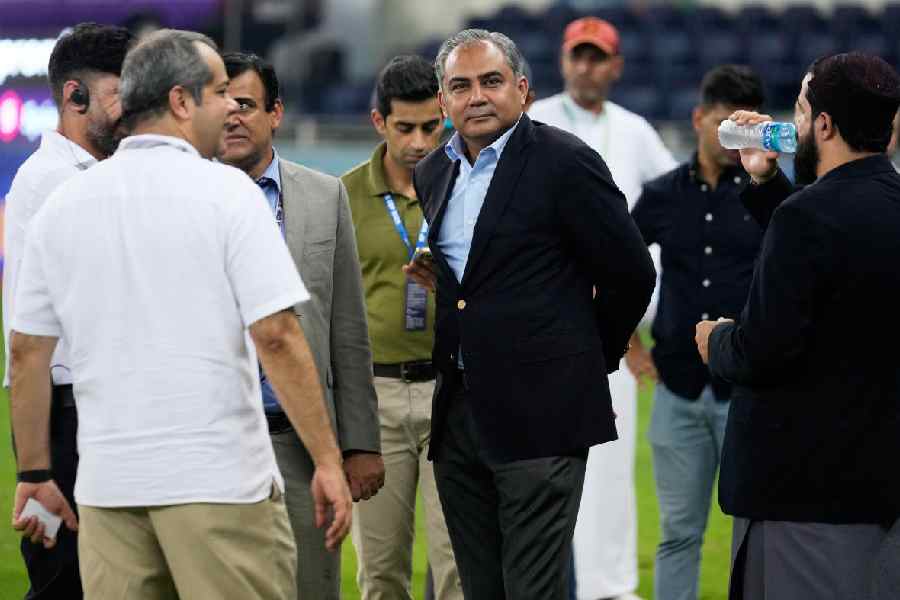 |
What sort of animal is a CEO coach? Is it a CEO who coaches? If he has so much time on his hands, he shouldn’t be CEO. Make him the non-executive chairman, or better still, chairman emeritus, with a cabin, secretary and perks, and nothing to do. There are many such people around in the corporate world, only they aren’t coaching.
Is he a person who coaches CEOs? If the CEO needs coaching, should he or she really be there at the top? Wouldn’t it be better to appoint the CEO coach as CEO instead?
Dip into Secrets of a CEO Coach by D.A. Benton. “The personal coach... if high achievers like Tiger Woods and Donald Trump have one (or more) for their jobs, why shouldn’t you have one for yours,” asks the book. “A coach isn’t a friend, a boss, an in-law, a personal acquaintance or even a mentor. A coach is a person who gives private one-on-one instruction to prepare a person for specialised or important work.” You will find a lot of talk about “specialised or important work.” But the title says it all. These are guys who try and train you to become CEOs.
If you feel that you have a chance to become CEO, you must be reasonably senior — both in designation and age. So, the CEO coach can’t be teaching you your job. Where he can give inputs is in interpersonal relationships and social skills. In other words, the CEO coach functions as a sort of finishing schoolmaster. It has to be kept very hush-hush because availing of the services of a CEO coach is seen as a disqualification for the top job. You might as well go and attend an air hostess training academy.
In some senses, the CEO coach is similar to the mentor. The mentor is within the company while the CEO coach is without. But the best of companies that went in for the mentor system have faced some problems in recent times. Hindustan Unilever, for instance, has had to import CEOs from its global network.
The trouble is that there are too many types in the workforce, all requiring different treatment. There was a time when executives would come from certain families, living in certain locations with a certain school or college background. Now, the ranks of the “us” have been invaded by the “them.”
In the US, for instance, there are four generations with different characteristics entering the workforce simultaneously. Commenting on the US Air Force official site, Lt Col Jason Knight says: “For the first time in history, our service (Air Force) is made up of four distinct generations. Each has its own values, work ethic and preferred method of communicating. All of these impact mentoring.”
The four generations — with some relevant character traits — are:
• Traditionalists: Born 1927-1945; Rigid respect for authority; work perceived as duty/obligation; [they] like formal, written communication; motivated when respected.
Baby Boomers: Born 1946-1964; Work defines them; tend to be workaholics; like face-to-face communication; motivated when valued / needed.
• Generation X: Born 1965-1979; Sceptical and self-reliant. Work should be challenging; prefer a structured work environment. Like direct and immediate communication; motivated when not restrained.
• Generation Y: Born 1980-2000; Multi-taskers who enjoy freedom to do assigned tasks; determined in their work ethic; like feedback, but prefer social media; motivated when they feel valuable.
Now add to that mix the Millennials and the Facebook Generation and you will realise why CEO coaches and corporate mentors don’t know whether they are coming or going or whether they are actually two different job titles for the same job description.
The coach needs a coach and the mentor a mentor. Or should it be the other way around?
TWO SIDES OF THE SAME COIN?
Mentor vs Coach
Mentor
Focus – Individual
Role – Facilitator with no agenda
Relationship – Self-selecting
Source of influence – Perceived value
Personal returns – Affirmation/learning
Arena – Life
Coach
Focus – Performance
Role – Specific agenda
Relationship – Comes with the job
Source of influence – Position
Personal returns – Teamwork / performance
Arena – Task-related










